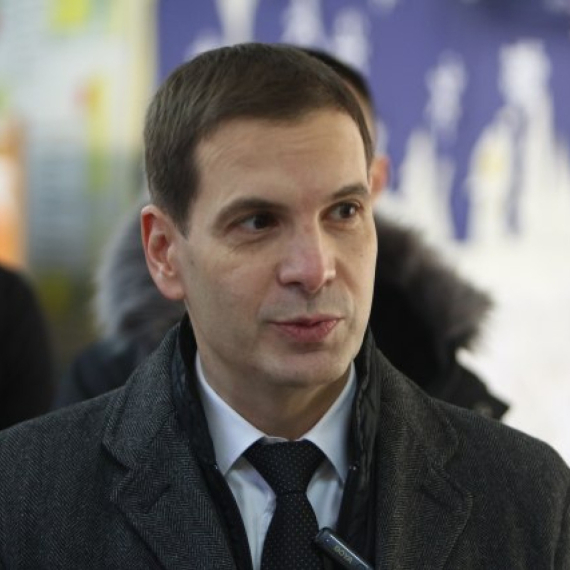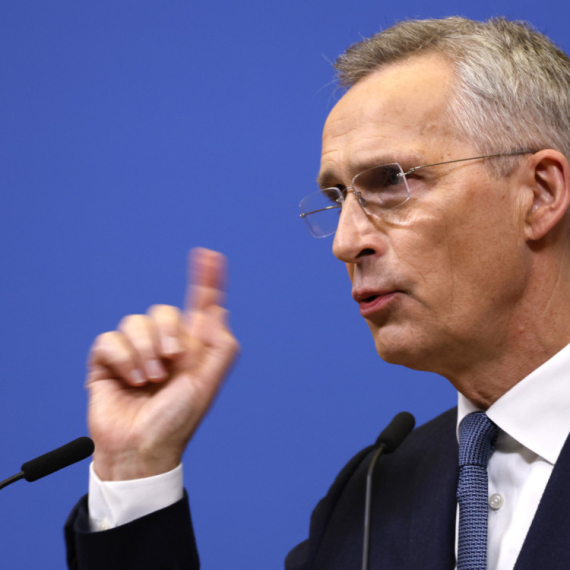EU won't send mission to Serbia
The European Union Council of Ministers on Monday failed to reach an agreement on sending a fact-finding mission to Serbia.
Monday, 23.02.2009.
09:36

The European Union Council of Ministers on Monday failed to reach an agreement on sending a fact-finding mission to Serbia. The discussions on Belgrade's initiative – put forward in order for the EU to to establish facts about Serbia's cooperation with the Hague Tribunal – will resume in March, Czech Foreign Minister Karel Schwarzenberg stated. EU won't send mission to Serbia No conclusions were reached on whether such a mission would be useful, Schwarzenberg told a news conference following the meeting of the union's foreign ministers. According to Tanjug, he underscored that it would "perhaps have certain effects on the public opinion and members of such a mission would get a rather positive impression on Serbia". "However, we should have in mind that a final evaluation of Serbia's full cooperation is to be given by Chief Hague Prosecutor Serge Brammertz, who is not particularly satisfied with the idea of sending a mission and who said that such a mission might be counterproductive," underscored the Czech FM. Schwarzenberg also said that a thorough debate on the issue, which will resume in March, is necessary. French Foreign Minister Bernard Kouchner said after the meeting that the idea to send an EU mission to Belgrade, "did not pass". The offer to do so was made in January by Foreign Minister Vuk Jeremic. Ahead of the meeting today, reports said that some EU member-states think the mission should be sent to Belgrade, as it could help speed cooperation with Serbia. Some members expect it to further clarify matters, while some do not see how it could lead to more tangible information. Officials in Brussels mentioned that the aim of such a mission would not be to supersede the Hague an any way, but rather to take a more specific and clearer look at exactly how things stand with Belgrade. As was announced, the opinion of Hague Prosecutor Serge Brammertz remains of key importance. Brammertz visited Brussels on Wednesday last week, saying that cooperation with Belgrade had improved, but that the two indicted war criminal that remain at large must be extradited to the Hague. That would allow for the unfreezing of the Stabilization and Association Agreement (SAA) between the EU and Serbia, and for Belgrade to speed its inclusion in the EU, affirmed Czech presidency officials. EU ministers were also scheduled to debate development in Kosovo and especially the efforts of the EULEX mission, in cooperation with Serbs, to improve its operation in Kosovo. Debate at the session, according to members of the Council of Ministers, was also to reflect the fact that governments and institutions in the EU 27 do not share the opinion of Belgrade’s government that EULEX has begun its work slowly. On the contrary, they respond that Belgrade should further assist the mission, in order for EULEX efforts to be felt, in particular, at the police and justice levels in northern Kosovo and enclaves where the majority of inhabitants are Serbs.
EU won't send mission to Serbia
No conclusions were reached on whether such a mission would be useful, Schwarzenberg told a news conference following the meeting of the union's foreign ministers.According to Tanjug, he underscored that it would "perhaps have certain effects on the public opinion and members of such a mission would get a rather positive impression on Serbia".
"However, we should have in mind that a final evaluation of Serbia's full cooperation is to be given by Chief Hague Prosecutor Serge Brammertz, who is not particularly satisfied with the idea of sending a mission and who said that such a mission might be counterproductive," underscored the Czech FM.
Schwarzenberg also said that a thorough debate on the issue, which will resume in March, is necessary.
French Foreign Minister Bernard Kouchner said after the meeting that the idea to send an EU mission to Belgrade, "did not pass".
The offer to do so was made in January by Foreign Minister Vuk Jeremić.
Ahead of the meeting today, reports said that some EU member-states think the mission should be sent to Belgrade, as it could help speed cooperation with Serbia. Some members expect it to further clarify matters, while some do not see how it could lead to more tangible information.
Officials in Brussels mentioned that the aim of such a mission would not be to supersede the Hague an any way, but rather to take a more specific and clearer look at exactly how things stand with Belgrade.
As was announced, the opinion of Hague Prosecutor Serge Brammertz remains of key importance. Brammertz visited Brussels on Wednesday last week, saying that cooperation with Belgrade had improved, but that the two indicted war criminal that remain at large must be extradited to the Hague.
That would allow for the unfreezing of the Stabilization and Association Agreement (SAA) between the EU and Serbia, and for Belgrade to speed its inclusion in the EU, affirmed Czech presidency officials.
EU ministers were also scheduled to debate development in Kosovo and especially the efforts of the EULEX mission, in cooperation with Serbs, to improve its operation in Kosovo.
Debate at the session, according to members of the Council of Ministers, was also to reflect the fact that governments and institutions in the EU 27 do not share the opinion of Belgrade’s government that EULEX has begun its work slowly.
On the contrary, they respond that Belgrade should further assist the mission, in order for EULEX efforts to be felt, in particular, at the police and justice levels in northern Kosovo and enclaves where the majority of inhabitants are Serbs.


























































Komentari 31
Pogledaj komentare